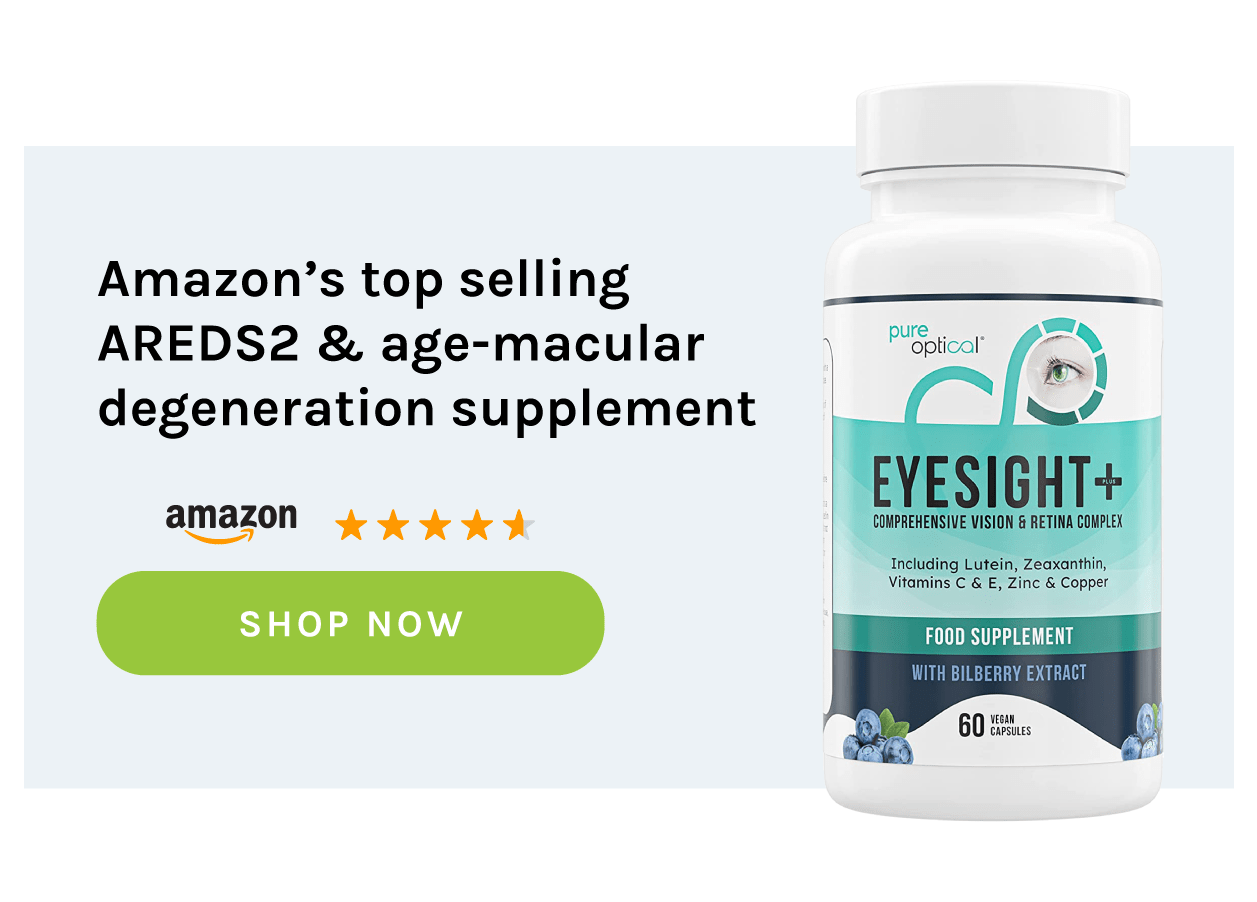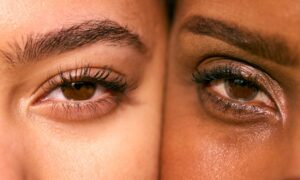Macular degeneration, often referred to as age-related macular degeneration (AMD), is a common eye condition that affects the macula, a small part of the retina responsible for sharp, central vision. It is a leading cause of visual impairment in older adults.
When diagnosed with AMD, it is essential to understand the lifestyle changes necessary to manage the condition better. One of the questions frequently posed by those with AMD is regarding alcohol consumption.
Here, we delve into the relationship between alcohol and macular degeneration, and whether it is safe to consume alcoholic beverages when diagnosed with this condition.

What is macular degeneration?
Macular degeneration involves the deterioration of the macula, which can lead to vision loss in the center of one’s visual field. In the US, it affects more than 20 million people.
There are two types of AMD:
- Dry macular degeneration (atrophic): This is the most common form, accounting for 90% of cases. It involves the thinning of the macula over time.
- Wet macular degeneration (neovascular): This is less common but more severe. It involves the growth of abnormal blood vessels under the retina, which can leak blood and fluid, leading to rapid vision loss.
The role of alcohol in macular degeneration
The direct link between alcohol consumption and macular degeneration is not definitively established. However, several studies have explored this relationship:
1. Moderate consumption
Some research suggests that moderate alcohol consumption (14 units of alcohol a week) might not significantly impact the risk of developing AMD. In some cases, moderate drinking has even been associated with a slightly reduced risk.
2. Heavy consumption
High levels of alcohol consumption over an extended period can lead to a plethora of health issues, including those that may indirectly impact the eyes. There is some evidence to suggest that heavy or chronic drinking might increase the risk of macular degeneration.
Other factors and considerations
While the direct impact of alcohol on AMD is still being researched, several other factors are known to exacerbate the condition:
- Smoking: A consistent body of evidence links smoking to an increased risk of developing AMD. Moreover, the progression of the disease can be faster among smokers.
- Diet and nutrition: A diet rich in antioxidants, vitamins, and minerals can play a protective role against AMD. This is where supplements such as Eyesight Plus AREDS 2 Vitamins for Eyes come in.
💡 You might like this guide: How to heal macular degeneration naturally.
- Blood pressure and cardiovascular health: Conditions like high blood pressure can increase the risk of AMD. Excessive alcohol consumption can also affect cardiovascular health, indirectly impacting AMD.
Eyesight Plus AREDS 2 vitamins for eyes
The Age-Related Eye Disease Study (AREDS) was a major clinical trial that looked into the effects of vitamins on macular degeneration. The follow-up study, AREDS 2, further refined these findings. Based on the outcomes, specific formulations of vitamins and minerals were found to be beneficial for individuals at high risk of advanced AMD.
Eyesight Plus AREDS 2 Vitamins for Eyes is a product formulated based on these findings. It contains a blend of vitamins and minerals that can potentially slow the progression of the disease in people with intermediate or advanced dry macular degeneration. If you’re considering this supplement, it’s crucial to discuss it with an ophthalmologist or a healthcare professional to ensure it’s right for you.
Recommendations for alcohol consumption with AMD
For individuals with macular degeneration or those at risk:
- Stay within recommended limits: Ensure you’re not exceeding the 14 units per week guideline and try to spread your consumption over several days.
- Prioritize overall health: Even if alcohol’s direct link with AMD is not clear-cut, excessive drinking can harm overall health, which in turn can exacerbate AMD.
- Regularly consult with healthcare professionals: Stay updated with the latest research and guidelines related to AMD and its management.

Understanding the impact of lifestyle choices on AMD
While our focus is on the potential relationship between alcohol consumption and macular degeneration, it’s crucial to situate this within the broader context of overall lifestyle choices and their cumulative effects on eye health.
Genetics and family history
There’s a strong hereditary component to AMD. If you have a family history of the condition, you may be at a higher risk. Thus, it becomes even more crucial to understand how various lifestyle factors, including alcohol consumption, might interplay with genetic predispositions.
The broader effects of alcohol on health
Beyond its potential impact on AMD, alcohol can have a broad range of effects on one’s health. Chronic excessive alcohol consumption has been linked to liver disease, certain cancers, heart conditions, and neurological disorders. Each of these conditions can indirectly influence AMD, especially cardiovascular conditions which might alter the blood flow to the eyes.
Dietary choices and AMD
Beyond supplements like Eyesight Plus AREDS 2 Vitamins for Eyes, your day-to-day dietary choices play a role in managing or potentially exacerbating AMD. Omega-3 fatty acids, found in fish, and antioxidants from colorful fruits and vegetables, can offer protective effects against the progression of AMD. Conversely, a diet high in saturated fats and simple sugars might increase the risk.
Sunlight and eye protection
Prolonged exposure to sunlight, especially UV rays, might escalate the risk of AMD. It is vital to protect your eyes from excessive sunlight by wearing sunglasses that block out 100% of UV rays and a hat with a wide brim. Alcohol can sometimes exacerbate light sensitivity, so combining heavy drinking with prolonged sun exposure without protection might heighten the risk.
Staying proactive with regular screenings
Irrespective of one’s alcohol consumption habits, regular eye screenings are crucial. Early detection of AMD or any changes in its progression can allow timely intervention. This is particularly important as early-stage AMD might not present any noticeable symptoms.
Alcohol and medication interactions
For those diagnosed with AMD, various treatments and medications might be prescribed, depending on the type and stage of the disease. It’s essential to understand how alcohol might interact with these medications. Some drugs may have their effectiveness reduced when combined with alcohol, while others might lead to harmful side effects.

Alcohol impacts your health in more ways than one
The multifaceted relationship between alcohol and health, especially in the context of conditions like macular degeneration, underscores the importance of moderation and informed choices. While enjoying a drink occasionally might not have a severe detrimental effect on AMD, it’s essential to consider alcohol within the broader spectrum of one’s overall lifestyle, genetics, and health history. Regular consultations with healthcare professionals and eye specialists can provide personalized advice and guidance tailored to individual needs and risks.





